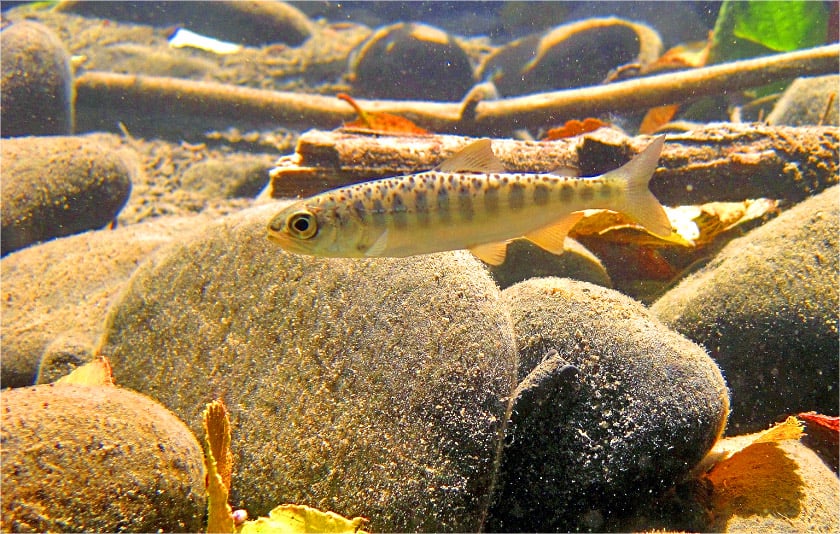(CN) – Amid news that ocean fish will face increasingly severe marine heatwaves, a U.S. government agency said the cold inland rivers where salmon are born and reproduce would face “substantial impacts of an unprecedented scale” if a proposed natural gas pipeline is built according to initial plans.
The “sheer magnitude” of a proposed 229-mile natural gas pipeline would have “substantial impacts of an unprecedented scale” on the rivers and streams where salmon are born and return to reproduce, according to comments filed Friday by the Pacific Fisheries Management Council, the government agency tasked with managing fishing along the entire West Coast.
The council says the Jordan Cove Pacific Connector Gas Pipeline project would affect the habitat of endangered coho salmon and Klamath River fall chinook, which the council declared depleted this year. That triggered requirements for habitat restoration projects that will help recover the population.
The council’s restoration plan zeroes in on three factors harming the fish: elevated water temperatures, low water levels and increases in sediment. These are the very things the council says will worsen if the pipeline is built.
And endangered coastal coho have dwindled in recent years from an annual average in 2004-2014 of 199,000 adults returning to the streams where they were born down to an average of about 67,000 adults returning each of the last four years.
As written, plans for the pipeline project would clear vegetation from along streams and rivers, exposing them to sun and heat – the opposite of what needs to be done to protect salmon from the warming waters caused by climate change. And the council says hillsides disturbed by the pipeline will be even more prone to landslides and erosion that will fill streams with sediment during violent storms and heavy rainfall that scientists say will result from climate change. Additionally, ongoing testing would also require sucking 30 million gallons of water out of nine streams where salmon live, the council says.
That’s all in addition to the increasingly common marine heatwaves they face in the ocean.
But the draft environmental impact statement released in March by the Federal Energy Regulatory Commission focuses mostly on preventing wildfire and damage to timber farms, instead of describing specific ways to limit harm to salmon and other sensitive creatures, the council says.
FERC will issue its final environmental impact statement on Nov. 15, incorporating responses like the one from Pacific Fisheries Management Council. An order either approving or rejecting the project will be issued Feb. 13.
The state of Oregon criticized the draft plan in July, saying it doesn’t require such mitigation efforts and instead left them up to the discretion of Pembina, the Canadian company behind the project. Even though they aren’t required, FERC said Pembina’s proposed mitigation plans made environmental risks “less than significant.” But Oregon pointed out state and federal agencies would have no way to enforce their implementation.
The council asked FERC to work with Oregon Department of Fish and Wildlife on an enforceable plan to minimize the harm the pipeline would cause to salmon.
Jordan Cove Spokesman Paul Vogel sent the following statement via email:
“Jordan Cove is committed to meeting the many federal, state and local permitting requirements that ensure safe design, construction and operations of the pipeline and facility,” Vogel wrote. “We'll respond to all comments regulators consider appropriate and relevant at the proper time and within the respective permitting process.”
Subscribe to Closing Arguments
Sign up for new weekly newsletter Closing Arguments to get the latest about ongoing trials, major litigation and hot cases and rulings in courthouses around the U.S. and the world.








